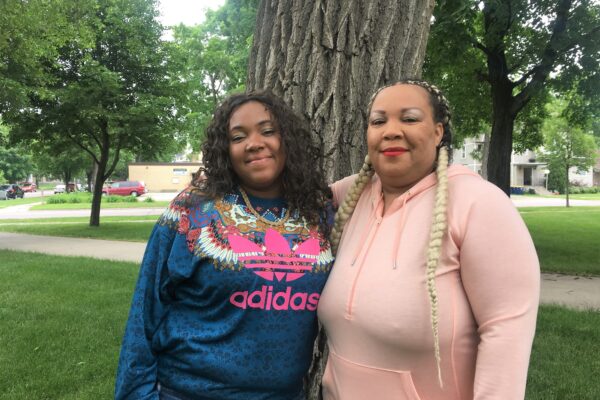ACLU Wins Settlement to End Housing Discrimination Case
Case expected to have national impact on “crime-free” housing programs
FARIBAULT, Minn. — The American Civil Liberties Union and ACLU of Minnesota have settled a lawsuit with the city of Faribault over its unconstitutional and discriminatory housing rental ordinance, which encouraged landlords to discriminate and limited housing opportunities for people of color. The $685,000 settlement includes reforms designed to end discrimination in housing and can provide a model to help strike down similar discriminatory housing programs in cities across the country.
As part of the settlement, the Faribault City Council last night voted to overhaul its Rental Licensing Ordinance and so-called Crime-Free Multi-Housing program, which disproportionately hurt people of color. The challenged policies encouraged landlords to bar housing applicants with any criminal record; allowed landlords to evict tenants for calling 911 for help; authorized police to order evictions without due process on mere suspicion that tenants or their guests were engaged in criminal activity; and permitted landlords to evict families for violating occupancy limits after having a newborn baby, among other discriminatory policies. The lawsuit argued that the city’s policies violated the Fair Housing Act, the Equal Protection Clause of the 14th Amendment, and the Minnesota Constitution.
“We believe Faribault passed this unequitable and unconstitutional ordinance to target its rapidly growing communities of color,” said ACLU-MN Legal Director Teresa Nelson. “This settlement sends a clear message that this discriminatory conduct, which robbed immigrants and Black people of their homes and pushed them out of the city, will no longer be tolerated here or across the nation. No one should lose their home because of where they come from or what they look like.”
The plaintiffs include Somali Community Resettlement Services, which had to divert scarce resources to address the housing crisis caused by the ordinance, and seven people whose families faced eviction. Most had to leave Faribault because they couldn’t find other housing.
“The city of Faribault forced me, my children, and my grandchildren out of our home,” said plaintiff Thelma Jones. “Instead of being able to enjoy my grandchildren playing in our backyard and sharing meals together, now we’re scattered across the Twin Cities. I didn’t feel safe staying in Faribault. While I can never replace the togetherness my family lost, I hope this settlement prevents discrimination like this from happening to other Black families.”
The settlement addresses the ordinance’s policies that limited housing opportunities for people with criminal records by requiring landlords to conduct criminal history checks on every prospective tenant prior to renting. As part of a mandatory training, landlords were instructed that criminals “are like weeds” because they “grow roots” and “choke out healthy plants” and when “a criminal has an opportunity to act … they take over an entire rental community!” This policy disproportionately hurt Black Minnesotans, who are more likely to be targeted by police and have criminal records due to systemic racism in the criminal legal system. Under the settlement, background checks now are optional, and landlords who do choose to do them can only consider certain recent serious felonies – not arrests, misdemeanors, or expunged or reversed convictions, and must give each applicant individualized consideration.
“Jurisdictions looking to reform their own overly-broad criminal screening policies and help end unjustified discrimination against Black and Brown housing applicants will now have a model to follow with Faribault," said Alejandro Ortiz, senior staff attorney with the ACLU. "Other cities across the country should strike down these unjustified crime-free housing laws and programs and instead focus on promoting housing opportunities and relationships with communities of color.”
Additionally, under the settlement, police cannot order the eviction of everybody in a household just because police suspect a single family member or guest of unspecified criminal activity. Before, police could force an eviction for virtually any act they viewed as “disorderly,” even if that act didn’t constitute criminal conduct. The vagueness and breadth of what could constitute “disorderly conduct” was breathtaking, such as “nuisance service calls” for conduct that “unreasonably annoys” others; engaging “in offensive, obscene or abusive language or in boisterous and noisy conduct tending reasonably to arouse alarm, anger or resentment in others;” or a minor out in public after 11 p.m. on a weeknight in violation of curfew.
Now, the list of what’s considered disorderly conduct that could lead to eviction is shorter, clearly defined to include only certain criminal conduct (e.g., arson or burglary), and specifies that the conduct must occur on the rental property. Additionally, the city cannot pursue an eviction against a tenant who was a victim of the incidents behind the disorderly conduct offense. Calls to 911 can no longer qualify as “disorderly” conduct and the new “Tenant Victim” provision will help ensure that victims of domestic violence aren’t evicted for their abuser’s misconduct. The settlement also expanded due process for tenants facing eviction under the ordinance, giving them the right to appeal the city’s determination for the first time.
The settlement also changes how occupancy limits are set, expanding housing opportunities for larger families. Some Somali families were forced out of their homes after having a baby for violating the previous occupancy limits. Now babies and toddlers can’t count toward those limits.
“These discriminatory city policies made the Somali community feel singled out and unwelcome, especially after so many of us escaped civil war and refugee camps, expecting to make a new and safe home in Faribault,” said Harun Mohamed Ali of Somali Community Resettlement Services, one of the plaintiffs. “Some Somali families were evicted after simply having a baby. Having a newborn should be a time for joy and celebration, not a time for fear of losing your housing and security.”
City officials had touted the success of its “crime-free" housing program at getting rid of residents who are “undesirable.” A city council member said Faribault needed to attract higher income residents or it would “flip like Detroit in a few years.” City officials testified that the Somali population was the former mayor’s “number one complaint;” that Somalis gathering downtown frightened customers not used to seeing Black people; and that the mosque was viewed as a “breeding ground for terrorists.” These statements and many others revealed the discriminatory motive behind the ordinance.
“The Court finds that the confluence of racialized complaints leading up to the Ordinance’s enactment, the City’s knowledge that the Ordinance would have negative effects on the Somali community, and the City’s desire to eliminate low-rent housing downtown, create an inference that the City implemented the Ordinance because of its potential displacement of Black residents, not merely in spite of such effect,” wrote U.S. District Chief Judge John Tunheim in a February 18, 2021 ruling on the case.
The settlement can be found here.
Related Content

ACLU Sues City of Faribault, Minnesota for Rental Housing Policy Targeting Black People, Especially Immigrants

Minnesota City’s Ordinance Illegally Targets People of Color in Rental Housing

The Problem with Crime-Free Housing Ordinances
Stay Informed
Sign up to be the first to hear about how to take action.
By completing this form, I agree to receive occasional emails per the terms of the ACLU’s privacy statement.
By completing this form, I agree to receive occasional emails per the terms of the ACLU’s privacy statement.

